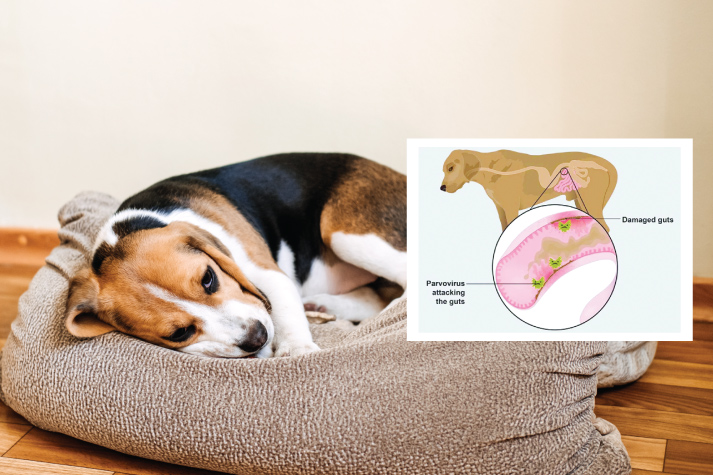
26 Sep
Beware: Parvovirus Outbreak among Lucknow Pets
Lucknow: Two pet dogs have died of parvovirus in Lucknow. The news comes at a time when the city is seeing an uptick in the number of parvovirus cases among dogs. The symptoms of parvovirus include a high body temperature with a loss of appetite, which often leads to owners mistaking it for an allergy or seasonal sickness.
According to the veterinarians of the city, Lucknow is experiencing a Parvovirus outbreak amongst pets, with numbers significantly higher. Compared to the normal weekly average of five or six cases, vets are now seeing 40-50 cases per week.
Parvovirus is a viral infection, which is extremely contagious and can spread via touch and aerial transmission. While a dangerous disease, parvovirus can be contained by vaccination, and a parvovirus vaccine is among the five basic vaccines prescribed to dogs.
“Parvovirus infection is very common in winter, but this time we are witnessing the outbreak in summer because of fluctuation in weather conditions and a huge variation in temperatures due to the recent rainy spell,” said Dr Rajneesh Chandra, a veterinarian. Another Lucknow-based vet detailed the kind of damage the virus causes, saying “The virus attacks the intestinal tracts and stomach of dogs, especially of the exotic breeds, leading to fever, loss of appetite and dysentery, which if not treated early, could result in death”.
Since the virus is very contagious and can spread easily through the air and touch, it is easily caught in places like parks or common areas. The disease is marked by symptoms like fever, a loss of appetite, and vomiting, which are early signs that your dog is sick. If you notice your dog showing any of these symptoms, contact your vet immediately, as your dog will likely require expert care.
The first precaution you can take against this deadly viral infection is vaccination. Prevention is better than cure, and the easiest way to avoid this deadly virus is by staying up to date with all your pet’s vaccinations. Some vaccinations offer long-term protection, while others need boosters and annual re-vaccinations to maintain protection. With the parvovirus vaccine, it is recommended you opt for a booster dose or a refresher every twelve months, or as per your vet’s directions.
Remember to never self-diagnose and medicate your pet, as this will almost always do more harm than good. Be vigilant and pay attention to any symptoms or odd behaviours, and contact your vet immediately if you suspect your dog is ill.



AUTHOR’S BIO
Carry My Pet
Passionate pet enthusiasts and globetrotters, dedicated to easing furry friends' journeys worldwide. Penning tales of compassion at CarryMyPet, where every relocation is a tail-wagging adventure.